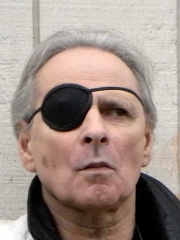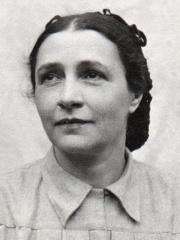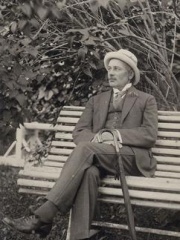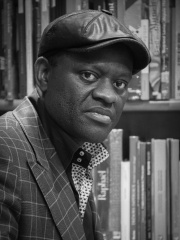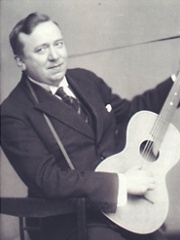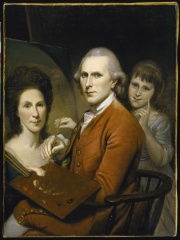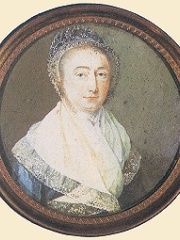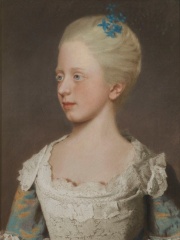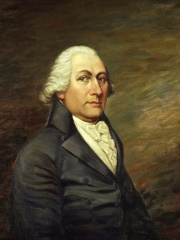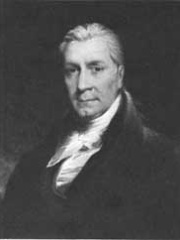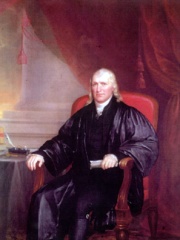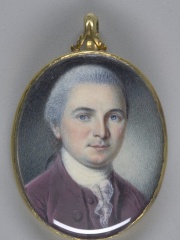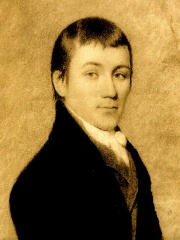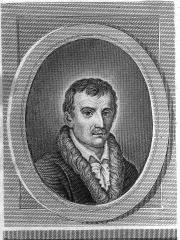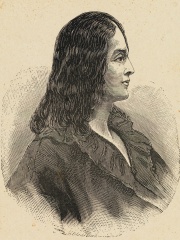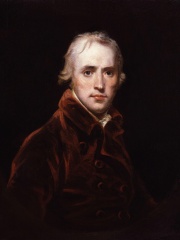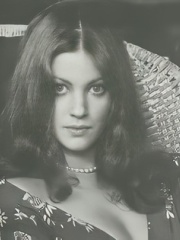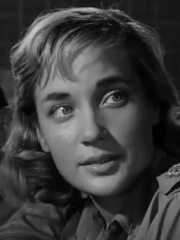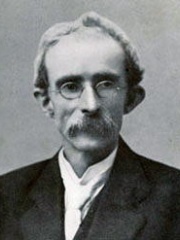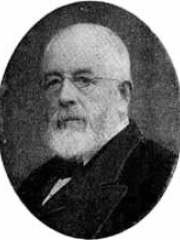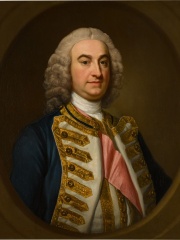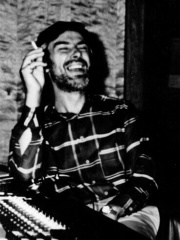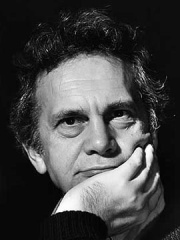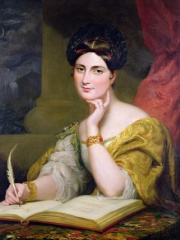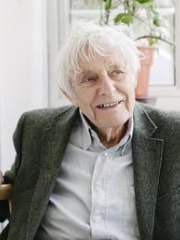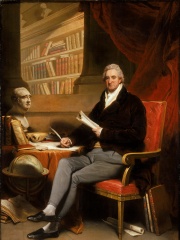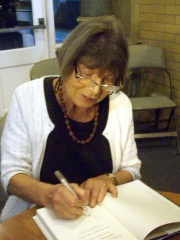Író
Sarah Trimmer
1741 - 1810
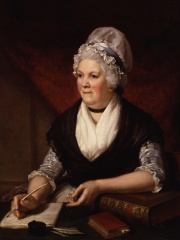
 Sarah Trimmer
Sarah Trimmer
Életrajza 16 különböző nyelven érhető el a Wikipédián (növekedés 15-ről 2024-ben). Sarah Trimmer a 6,243rd legnépszerűbb író (csökkenés a 6,025th-ről 2024-ben), a 5,394th legnépszerűbb életrajz Egyesült Királyság országából (csökkenés a 4,892nd-ről 2019-ben) és a 591st legnépszerűbb Egyesült Királyságból író.
Memorability Metrics
Page views of Sarah Trimmer by language
Among Író
Among író, Sarah Trimmer ranks 6,243 out of 7,302. Before her are Elizabeth Moon, Andrew Vachss, William Dunbar, Oscar Hijuelos, Jane Smiley, and Anne Fine. After her are Roddy Doyle, Irena Krzywicka, Jānis Akuraters, Alain Mabanckou, Rami Saari, and Birger Sjöberg.
Most Popular ÍRó in Wikipedia
Go to all RankingsElizabeth Moon
1945 - Present
HPI: 51.59
Rank: 6,237
Andrew Vachss
1942 - 2021
HPI: 51.58
Rank: 6,238
William Dunbar
1460 - 1520
HPI: 51.57
Rank: 6,239
Oscar Hijuelos
1951 - 2013
HPI: 51.56
Rank: 6,240
Jane Smiley
1949 - Present
HPI: 51.56
Rank: 6,241
Anne Fine
1947 - Present
HPI: 51.55
Rank: 6,242
Sarah Trimmer
1741 - 1810
HPI: 51.55
Rank: 6,243
Roddy Doyle
1958 - Present
HPI: 51.54
Rank: 6,244
Irena Krzywicka
1899 - 1994
HPI: 51.54
Rank: 6,245
Jānis Akuraters
1876 - 1937
HPI: 51.53
Rank: 6,246
Alain Mabanckou
1966 - Present
HPI: 51.52
Rank: 6,247
Rami Saari
1963 - Present
HPI: 51.51
Rank: 6,248
Birger Sjöberg
1885 - 1929
HPI: 51.51
Rank: 6,249
Contemporaries
Among people born in 1741, Sarah Trimmer ranks 32. Before her are Charles Willson Peale, Aagje Deken, Princess Elizabeth of Great Britain, John Langdon, Thomas Fitzsimons, and Samuel Chase. After her is George Walton. Among people deceased in 1810, Sarah Trimmer ranks 34. Before her are William Martin, Charles Brockden Brown, Said bin Ahmad, Johann Gottfried Seume, Tomás António Gonzaga, and John Hoppner.
Others Born in 1741
Go to all RankingsCharles Willson Peale
PAINTER
1741 - 1827
HPI: 55.94
Rank: 26
Aagje Deken
WRITER
1741 - 1804
HPI: 55.80
Rank: 27
Princess Elizabeth of Great Britain
POLITICIAN
1741 - 1759
HPI: 55.00
Rank: 28
John Langdon
POLITICIAN
1741 - 1819
HPI: 54.75
Rank: 29
Thomas Fitzsimons
POLITICIAN
1741 - 1811
HPI: 51.84
Rank: 30
Samuel Chase
JUDGE
1741 - 1811
HPI: 51.73
Rank: 31
Sarah Trimmer
WRITER
1741 - 1810
HPI: 51.55
Rank: 32
George Walton
POLITICIAN
1741 - 1804
HPI: 48.17
Rank: 33
Others Deceased in 1810
Go to all RankingsWilliam Martin
POLITICIAN
1767 - 1810
HPI: 56.59
Rank: 28
Charles Brockden Brown
WRITER
1771 - 1810
HPI: 56.28
Rank: 29
Said bin Ahmad
POLITICIAN
1800 - 1810
HPI: 55.80
Rank: 30
Johann Gottfried Seume
WRITER
1763 - 1810
HPI: 55.47
Rank: 31
Tomás António Gonzaga
WRITER
1744 - 1810
HPI: 55.19
Rank: 32
John Hoppner
PAINTER
1758 - 1810
HPI: 55.01
Rank: 33
Sarah Trimmer
WRITER
1741 - 1810
HPI: 51.55
Rank: 34
In Egyesült Királyság
Among people born in Egyesült Királyság, Sarah Trimmer ranks 5,396 out of NaN. Before her are William Dunbar (1460), Lynne Frederick (1954), Sylvia Syms (1934), Tom Clarke (1858), Anne Fine (1947), and Henry Tate (1819). After her are Michael Thomas (1967), Edward Hawke, 1st Baron Hawke (1705), Gem Archer (1966), Glyn Johns (1942), Terry Chimes (1956), and Daniel Massey (1933).
Others born in Egyesült Királyság
Go to all RankingsWilliam Dunbar
WRITER
1460 - 1520
HPI: 51.57
Rank: 5,390
Lynne Frederick
ACTOR
1954 - 1994
HPI: 51.57
Rank: 5,391
Sylvia Syms
ACTOR
1934 - 2023
HPI: 51.56
Rank: 5,392
Tom Clarke
POLITICIAN
1858 - 1916
HPI: 51.56
Rank: 5,393
Anne Fine
WRITER
1947 - Present
HPI: 51.55
Rank: 5,394
Henry Tate
BUSINESSPERSON
1819 - 1899
HPI: 51.55
Rank: 5,395
Sarah Trimmer
WRITER
1741 - 1810
HPI: 51.55
Rank: 5,396
Michael Thomas
SOCCER PLAYER
1967 - Present
HPI: 51.55
Rank: 5,397
Edward Hawke, 1st Baron Hawke
POLITICIAN
1705 - 1781
HPI: 51.54
Rank: 5,398
Gem Archer
MUSICIAN
1966 - Present
HPI: 51.54
Rank: 5,399
Glyn Johns
MUSICIAN
1942 - Present
HPI: 51.53
Rank: 5,400
Terry Chimes
MUSICIAN
1956 - Present
HPI: 51.52
Rank: 5,401
Daniel Massey
ACTOR
1933 - 1998
HPI: 51.52
Rank: 5,402
Among Író In Egyesült Királyság
Among író born in Egyesült Királyság, Sarah Trimmer ranks 591. Before her are Christopher Fry (1907), Piers Anthony (1934), Howard Jacobson (1942), Caroline Norton (1808), William Dunbar (1460), and Anne Fine (1947). After her are Owen Barfield (1898), Dannie Abse (1923), William Roscoe (1753), Jilly Cooper (1937), Margaret Drabble (1939), and Henry Vaughan (1621).
Christopher Fry
1907 - 2005
HPI: 51.72
Rank: 585
Piers Anthony
1934 - Present
HPI: 51.63
Rank: 586
Howard Jacobson
1942 - Present
HPI: 51.63
Rank: 587
Caroline Norton
1808 - 1877
HPI: 51.60
Rank: 588
William Dunbar
1460 - 1520
HPI: 51.57
Rank: 589
Anne Fine
1947 - Present
HPI: 51.55
Rank: 590
Sarah Trimmer
1741 - 1810
HPI: 51.55
Rank: 591
Owen Barfield
1898 - 1997
HPI: 51.50
Rank: 592
Dannie Abse
1923 - 2014
HPI: 51.50
Rank: 593
William Roscoe
1753 - 1831
HPI: 51.50
Rank: 594
Jilly Cooper
1937 - 2025
HPI: 51.43
Rank: 595
Margaret Drabble
1939 - Present
HPI: 51.36
Rank: 596
Henry Vaughan
1621 - 1695
HPI: 51.33
Rank: 597

